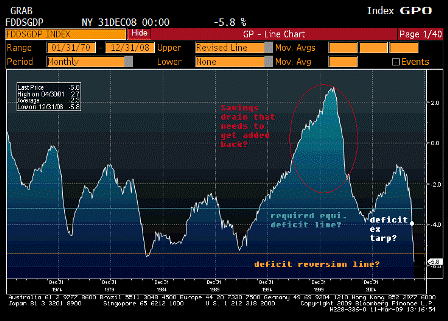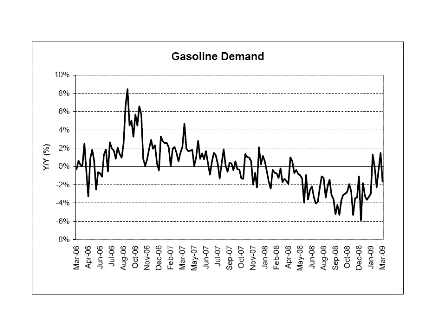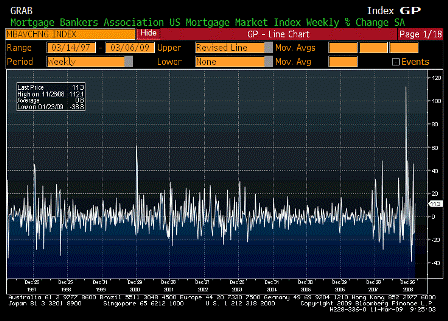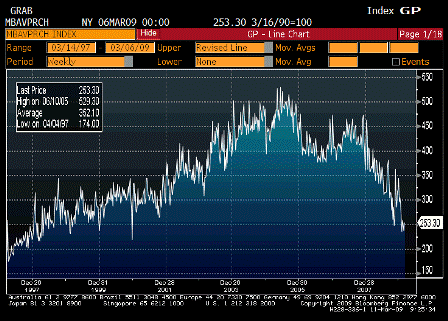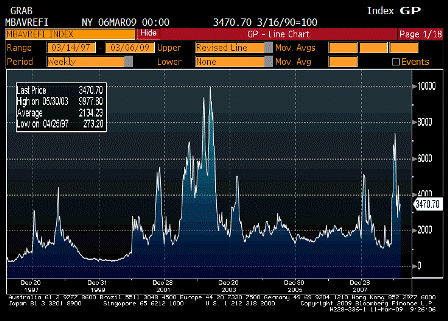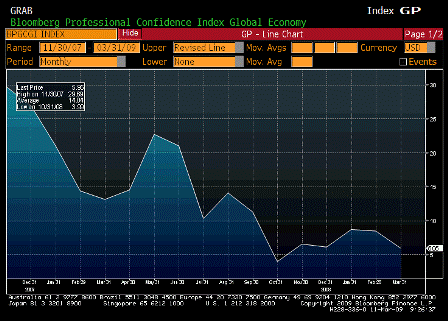- Advance Retail Sales MoM (Released 8:30 EST)
- Advance Retail Sales YoY (Released 8:30 EST)
- Retail Sales Less Autos (Released 8:30 EST)
- Initial Jobless Claims (Released 8:30 EST)
- Continuing Claims (Released 8:30 EST)
- Jobless Claims ALLX (Released 8:30 EST)
- Business Inventories MoM (Released 10:00 EST)
- Business Inventories YoY (Released 10:00 EST)
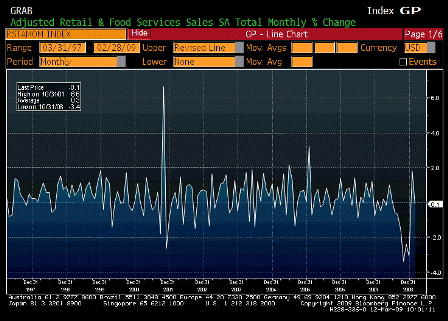
Advance Retail Sales MoM (Feb)
| Survey | -0.5% |
| Actual | -0.1% |
| Prior | 1.0% |
| Revised | 1.8% |
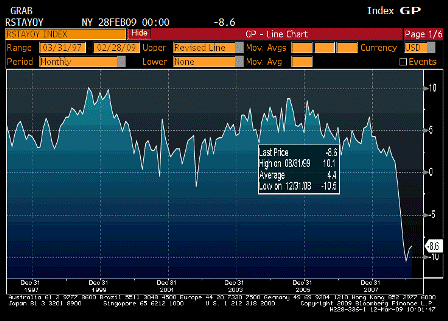
Advance Retail Sales YoY (Feb)
| Survey | n/a |
| Actual | -8.6% |
| Prior | -9.0% |
| Revised | n/a |
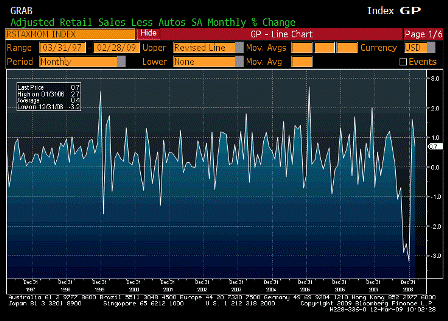
Retail Sales Less Autos (Feb)
| Survey | -0.1% |
| Actual | 0.7% |
| Prior | 0.9% |
| Revised | 1.6% |
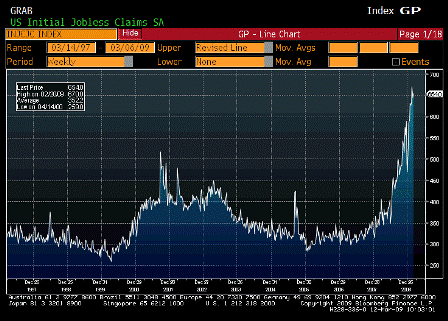
Initial Jobless Claims (Mar 7)
| Survey | 644K |
| Actual | 654K |
| Prior | 639K |
| Revised | 645K |
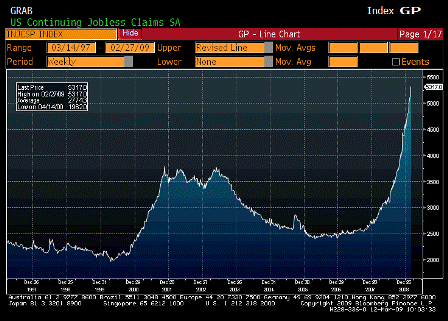
Continuing Claims (Mar 7)
| Survey | 5140K |
| Actual | 5317K |
| Prior | 5106K |
| Revised | 5124K |
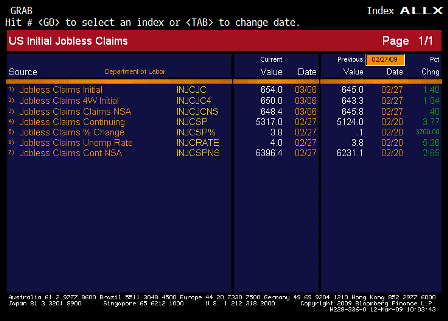
Jobless Claims ALLX (Mar 7)
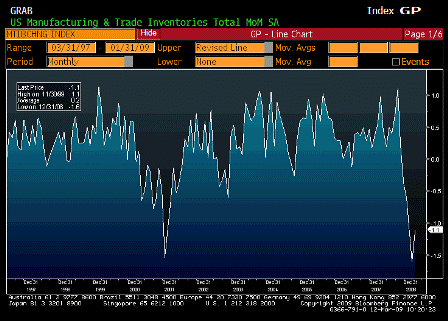
Business Inventories MoM (Jan)
| Survey | -1.0% |
| Actual | -1.1% |
| Prior | -1.3% |
| Revised | -1.6% |
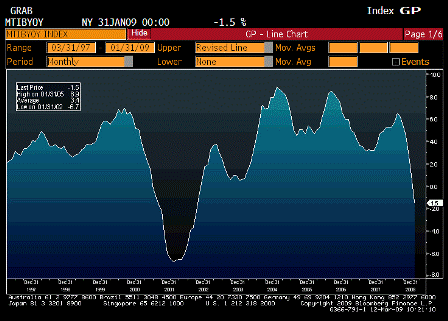
Business Inventories YoY (Jan)
| Survey | n/a |
| Actual | -1.5% |
| Prior | 0.6% |
| Revised | n/a |
[top]



